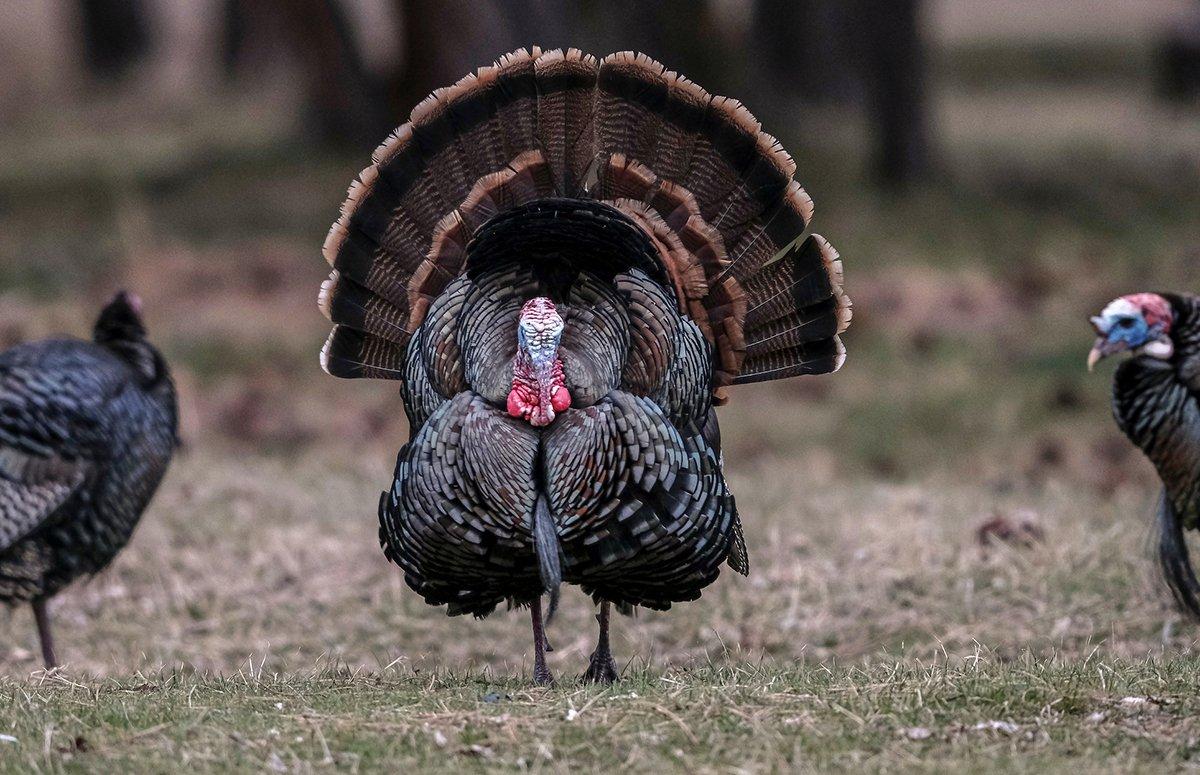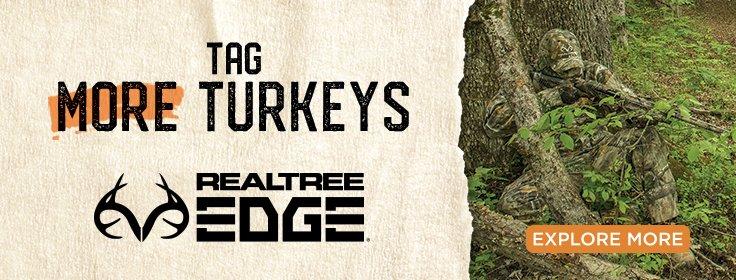Hunt hard, hunt smart, and get your gobbler with this time-tested advice
It's tough enough to call in and kill a skittish old longbeard on the best private ground. Throw in dozens of other hunters running and gunning and yelping madly on a management area or national forest and it can seem downright impossible to punch your tag. But keep the faith, keep rolling out of bed early and use these tips for hunting public gobblers.
Scout Smart and Early
Go for a drive around the public area(s) you plan to hunt in a few weeks. On an app such as onX Hunt, look for out-of-the-way logging roads or trails where you can park, hike in and get away from other hunters. Drop waypoints on roads and trails that are gated or closed to UTVs.
Take some scouting hikes. Look for ridges and bottoms with mature hardwoods where gobblers might roost and strut. Look for turkey tracks in muddy spots in roads and near creeks, and for scratching, fresh and old.
Toms start gobbling in late February and March. Scout early in the mornings and listen. The more gobblers you locate, the better. I try to find five or six gobbling turkeys at various spots before opening day. Other people will hear and hunt some of those birds, but they can't hunt them all.
Hunt Hard the First Two Weeks
Hunt every day you can during the first two weeks of the season, and try to get one of the gobblers you scouted before he's bumped and called to by other people. Don't miss Monday through Thursday, when fewer hunters are in the woods.
Jump out of bed and drive to a spot extra early each morning. Park, hike into the dark woods, and stand in a spot where you expect to hear a turkey gobble before another hunter drives anywhere close. Most of the time, if another hunter sees your truck parked near a road or trail, they'll drive by and hunt elsewhere. Extend the same courtesy to other hunters if they beat you to a favorite spot one morning.
Master Multiple Calls
Many mornings, a gobbler prefers the sound of one hen call above all others. This goes for turkeys anywhere and everywhere, but it's especially true for pressured birds on public dirt. For example, for five mornings, five hunters yelp to a turkey with high-pitched mouth calls. Every day, the bird quits gobbling and runs the other way. On the sixth morning, you move in and hit the tom with a raspy box call. He blows your hat off with gobbles and runs into easy shotgun range. Master several mouth and friction calls with various tones, pitches and rasp, and you'll be ready to give a bird what he wants.
(Don't Miss: How Wild Turkeys Endure Winter, and What You Can Do to Help)
Hunt Nasty Days
Do you roll over and go back to sleep on chilly mornings when rain and wind rattles the windows? You're messing up. Drag yourself out of bed and go. On nasty days, you won't see anybody else in the woods. If it's not raining too hard, some birds should gobble. If it clears up and the wind dies later in the morning, gobblers will light up, and you can have a great hunt.
Hunt Midday
One April morning, I drove to one of my favorite spots and found a truck already parked there. I drove five miles and hunted another area but never heard a bird.
Driving home at 10 a.m., I passed by my favorite spot, and the truck was gone. I parked, hiked a mile back into the sunny hardwoods, and yelped on a box. A gobbler roared. I worked him for an hour and killed him.
Maybe the other hunter had spooked the gobbler off the roost earlier. Maybe the tom was roosted with hens and didn't gobble. All I know is I slipped in there later that morning and killed the turkey, which had a 10-inch rope.
Hunting midmorning and even in the afternoon, where legal, is one of the best tactics for public land. A couple of things work to your advantage. One, most other hunters have left for home or work, so the woods and the turkeys have settled back down. You'll have plenty of elbow room. And by 10 or 11 a.m., many hens have dumped the toms to lay eggs and sit on nests. Hang tough, cover ground, blow a crow call and yelp. You only need one lonely strutter to respond.
Hunt Hard the Last Week, Too
As the season winds down, the crowds of public hunters subside with each day. The last week of the season, you probably won't see another truck or hunter.
Plus, in late spring, many longbeards go into a second gobbling frenzy as they try to locate the last receptive hens of mating season. With the woods to yourself, set up smartly, and float a few calls. Your last chance to punch that gobbler tag might be the best chance of the season.
(Don't Miss: Early Results in for Year 1 of Alabama Turkey Study)








